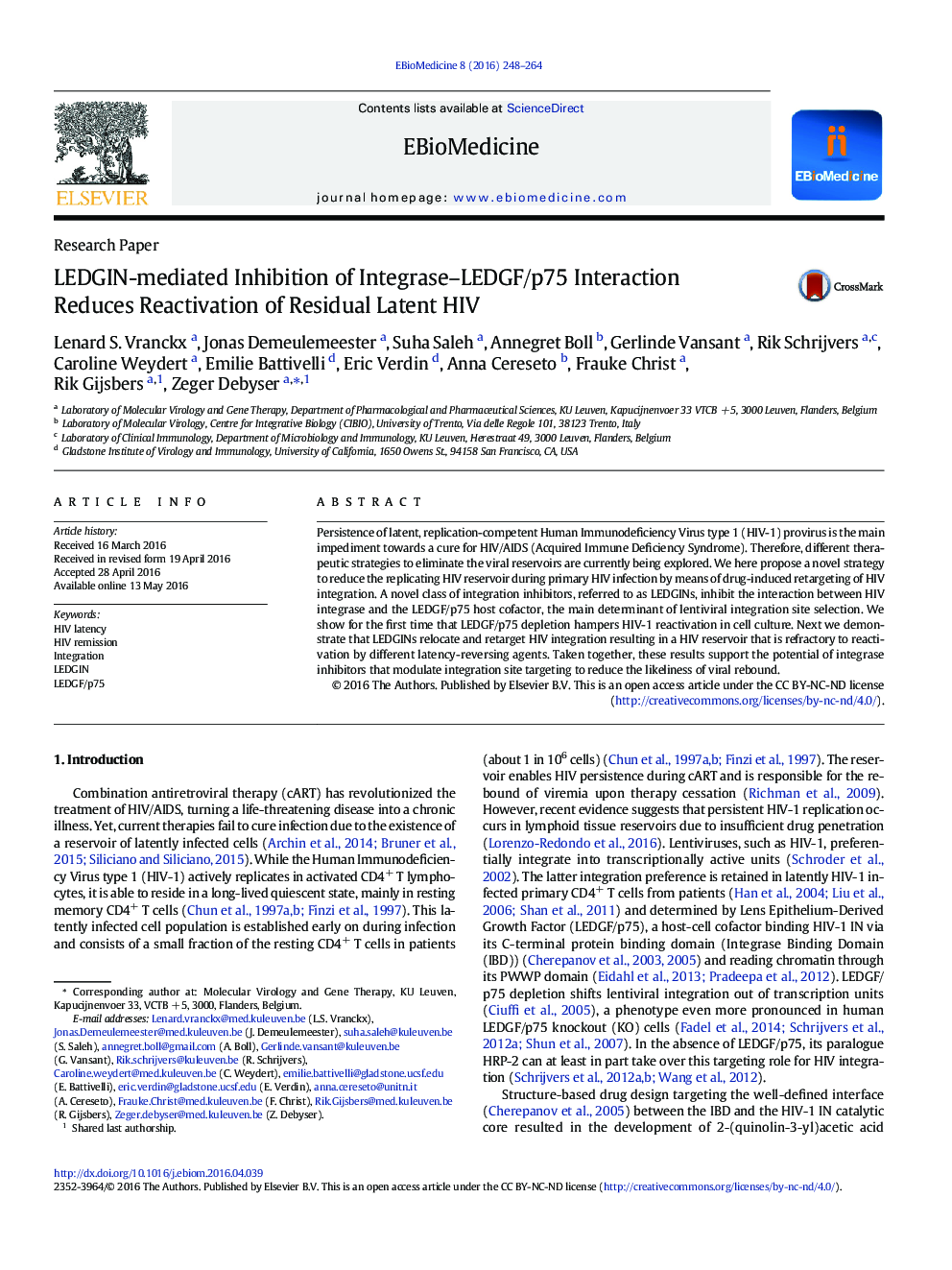| Article ID | Journal | Published Year | Pages | File Type |
|---|---|---|---|---|
| 2120769 | EBioMedicine | 2016 | 17 Pages |
•LEDGF/p75 depletion hampers HIV reactivation in cell culture.•LEDGINs relocate and retarget authentic HIV integration.•LEDGIN treatment results in quiescent residual HIV provirus which is less susceptible to reactivation.•LEDGIN treatment during primary HIV infection may lead to an HIV remission.Different strategies to cure HIV infection are being explored. Although complete eradication of the HIV provirus is the ultimate goal, disease remission allowing treatment interruption without viral rebound would constitute a significant leap forward. HIV integration site selection is orchestrated by LEDGF/p75. The advent of LEDGINs, that block the interaction between integrase and LEDGF/p75, allowed us to examine the hypothesis that interference with HIV integration site selection would yield integration sites that are less optimal for productive infection. Here we provide evidence in cell culture that LEDGIN treatment during acute HIV infection yields an HIV reservoir refractory to reactivation.
Persistence of latent, replication-competent Human Immunodeficiency Virus type 1 (HIV-1) provirus is the main impediment towards a cure for HIV/AIDS (Acquired Immune Deficiency Syndrome). Therefore, different therapeutic strategies to eliminate the viral reservoirs are currently being explored. We here propose a novel strategy to reduce the replicating HIV reservoir during primary HIV infection by means of drug-induced retargeting of HIV integration. A novel class of integration inhibitors, referred to as LEDGINs, inhibit the interaction between HIV integrase and the LEDGF/p75 host cofactor, the main determinant of lentiviral integration site selection. We show for the first time that LEDGF/p75 depletion hampers HIV-1 reactivation in cell culture. Next we demonstrate that LEDGINs relocate and retarget HIV integration resulting in a HIV reservoir that is refractory to reactivation by different latency-reversing agents. Taken together, these results support the potential of integrase inhibitors that modulate integration site targeting to reduce the likeliness of viral rebound.
